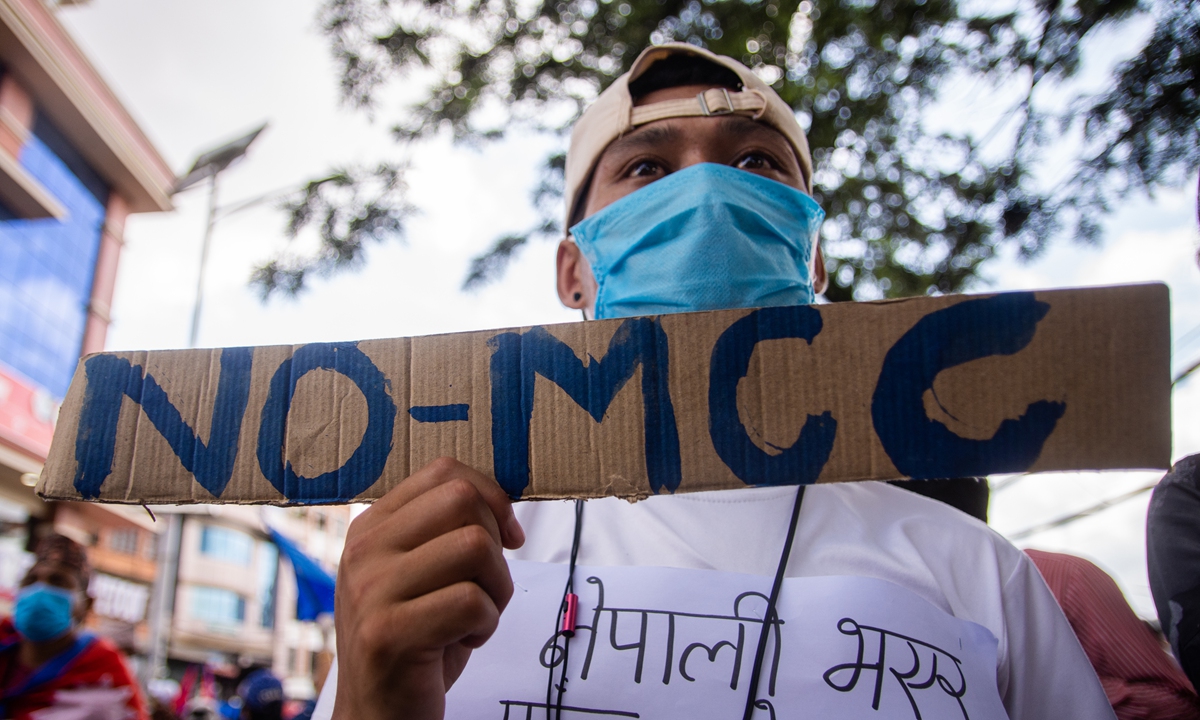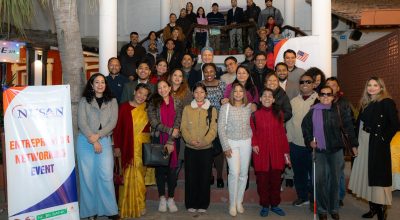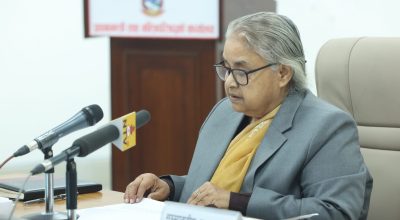
Particularly after the 1950, The United States has been champion on interfering in the internal matters of the other countries, citing this and that issues. Even Western political scientists opine that it is the US which has created instability in many countries and made fragile situation in many new and old democracies. Similar issue is happening in Nepal. In the name of Millennium Challenge Corporation (MCC), US has started new phase of meddling in the internal matter of Nepal. Frequent visit of the senior US officials to Nepal and their unwanted pressure to Nepali leaders have made people angry and thought that US is very aggressively working in Nepal. People afraid on that the US’s action never support for peace, instead it emerges new-new types of internal problems making Nepali polity weak and instable. Analysts suggest that if Nepali people delay responding to the US influence, it will create a very volatile and catastrophic situation, not only in Nepal but also in the entire region including the border areas.
The Millennium Challenge Corporation (MCC) is a US government agency that provides development assistance to countries that meet certain criteria. Amid huge objections from the people, last year, Nepali parliament has passed MCC agreement to receive a $500 million grant for infrastructure development. However, the MCC project has become controversial in Nepal due to concerns that it would allow the US to meddle in the country’s domestic affairs.
Critics of the MCC project argue that it includes provisions that would give the US control over Nepal’s economy and foreign policy. Specifically, the agreement reportedly requires Nepal to open its markets to US corporations, limit its relations with other major powers, and adopt US-style intellectual property laws. These requirements have been seen as an attempt by the US to increase its influence in Nepal and counter other power’s growing presence in the region.
Proponents of the MCC project argue that it would bring much-needed investment and development to Nepal, and that the concerns about US interference are unfounded. They argue that the agreement has been negotiated in a transparent and collaborative manner, and that Nepal would retain full sovereignty over its domestic affairs. They also point out that the MCC has a strong track record of promoting economic growth and poverty reduction in other countries.
The controversy over the MCC project reflects broader geopolitical tensions in the region, with the US and other powers vying for influence in South Asia. As Nepal navigates this complex landscape, it will need to balance the potential benefits of the MCC grant against concerns about foreign interference and maintain its own sovereignty and autonomy in domestic affairs.
The MCC project has become a topic of intense debate in Nepal, with concerns that the US-led initiative could have significant negative impacts on the country’s economic and geopolitical landscape. As such, Nepali people must restrain the project before it causes irreversible damage in multiple areas.
Firstly, the MCC project could have severe negative impacts on Nepal’s sovereignty and autonomy. The provisions of the agreement reportedly require Nepal to align itself more closely with US interests and limit its relations with other countries. This could put Nepal in a difficult position and leave it vulnerable to pressure from both the US and other powers. It is essential that Nepali people demand a renegotiation of the agreement to ensure that Nepal retains full control over its domestic affairs.
Secondly, the MCC project could have detrimental effects on Nepal’s economy. While the initiative is intended to promote economic growth and development, it is unclear whether the benefits of the project would outweigh the potential costs. Nepal could become overly dependent on the US, and the project could result in the displacement of local businesses and industries.
Finally, the MCC project could damage Nepal’s geopolitical position. Nepal must ensure that it does not become a pawn in geopolitical game, and that it maintains strong and independent relationships with all of its neighbors. MCC project has faced significant criticisms in many countries. These criticisms highlight the negative impacts of the project and raise questions about the US’s intentions and motives.
One example of the problems created by the MCC project can be seen in the case of Sri Lanka. In 2019, Sri Lanka pulled out of a proposed MCC grant, citing concerns about the project’s impact on national sovereignty and the potential for increased US influence in the region. Sri Lankan officials also criticized the project for its lack of transparency and accountability, with concerns that it could lead to corruption and misuse of funds.
Another example can be seen in the case of Mongolia, where the MCC project faced criticism for its potential environmental impacts. The proposed grant was intended to fund infrastructure and energy projects, but concerns were raised about the impact on the country’s fragile ecosystems and the potential displacement of local communities. These concerns ultimately led to the withdrawal of the proposed grant.
A final example of the problems created by the MCC project can be seen in the case of Tanzania. The government of Tanzania initially expressed interest in the project, but ultimately rejected it due to concerns about the conditions attached to the grant. Specifically, there were concerns about the requirement to adopt US-style intellectual property laws, which would have limited access to generic medicines and other essential goods. The project faced criticism for prioritizing US interests over the needs of the Tanzanian people.
If Nepali people want to stop the US-led MCC projects in Nepal, they will need to engage in sustained and organized campaigns and protests. First, they should engage in a coordinated and large-scale social media campaign to raise awareness about the potential negative impacts of the MCC project. This could include sharing information about the provisions of the agreement and highlighting the risks to Nepal’s sovereignty, autonomy, and economy. Nepali people can also use social media to mobilize supporters and organize protests and other actions.
Second, they should engage in nonviolent protests and demonstrations to make their voices heard. These protests could take the form of rallies, marches, sit-ins, and other forms of peaceful civil disobedience. Nepali people can also consider organizing boycotts or other forms of economic resistance to put pressure on the government and the MCC to reconsider the project. It is important that these protests be well-organized and sustained over a long period of time, with a clear set of demands and a strategy for achieving them.
In conclusion, stopping the US-led MCC projects in Nepal will require a sustained and organized effort on the part of the Nepali people. By engaging in social media campaigns, nonviolent protests, and other forms of resistance, they can raise awareness about the potential negative impacts of the project and put pressure on the government and the MCC to reconsider their plans. It is important that this effort be peaceful and nonviolent, with a clear commitment to national unity.














